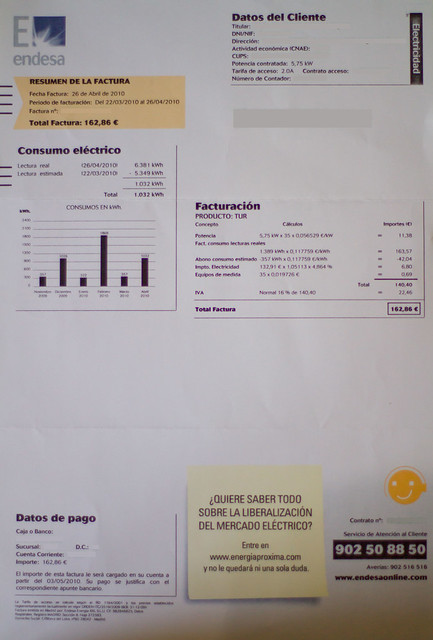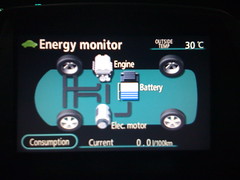
I went along to the MashupEvent Energy 2.0 – Energy goes Digital get together in London last Thursday.
It was a good event with some interesting speakers, including Usman Haque of pachube, Ajit Jaokar from FutureText and Paul Tanner (self-confessed energy nut!).
The talks were good – for me, one of the more interesting learnings was how pachube is being used to crowd-source rediation readings from hacked Geiger counters in Japan! Seriously awesome stuff, and a real case of people using the pachube platform for purposes never dreamed of when it was first created, I suspect.
When the floor was opened for questions and discussion, some interesting topics were raised. When the question was asked from the podium, one brave member of the audience confessed to being from a utility (British Gas) and she went on to raise an interesting point – she said it was hard to motivate people to to make any changes. British Gas, she said, have offered people free insulation, which would potentially save them hundreds of pounds, and they don’t take up the offer.
This is not the first time I have heard these kinds of stories. Why is that?
There are a few reasons for this, as far as I can see:
- When you are getting electricity bills like the one above, you have no idea what your actual consumption is like day-to day, minute-to-minute. I bought a Toyota Prius a number of years ago and it totally changed the way I drive because of how well the consumption information is fed back to me on the dashboard – the same is not true for the Honda Insight, as I discovered when Honda lent me one to trial, so not alone is it important to give people information on their consumption, it is also vital to present it in an easily digestible way.
- People don’t trust their utility companies – traditionally utility companies only communicate with their customers (who they often refer to as ratepayers!) when they are sending a bill or when a bill is overdue. This form of communication is not particularly conducive to establishing a good relationship. The basis for any good relationship and thereby trust is communication. Utility companies need to radically step up their customer communications, but not in a way that is spammy. They need to engage with their customers on all channels (if my preferred method of communication is Twitter, I want them to engage with me there, if my Dad’s preference is phone – talking to a person, not an IVR, then that’s where they need to talk to him). This is going to be a hard lesson for many utilities to learn but they fail to learn it at their own peril and
- Energy is too cheap! Possibly fixing 1 and 2 will persuade people to become more energy efficient, but I suspect, the real driver for energy efficiency will only come along when energy becomes more expensive. Only when the cost of energy really starts too impact on people’s lives, will they start to pay attention. Luckily, that’s the direction energy prices have been going for some time now!
You should follow me on Twitter here
Photo credit Tom Raftery


Great post.
Something that popped into my head while reading this was using gamification to engage people in energy conservation and tackle the problems you highlighted above regarding communication.
It would certainly help tackle the problem of communication in point 1 by providing real time information or breaking it down in a way that someone could comprehend.
And of course the ideas around gamification would push people into altering their behaviour to save energy, money and maybe gain better feeling than just ploughing crops in Farmville.
Knowing that you use twice as much fuel than other Prius drivers would make you want to work out why you’re using so much fuel. You’d feel king if you we’re one of the most efficient drivers however.
I remember being in the car with my grandparents once and their Volvo gave real time average on how long in miles the fuel would last. They made their own game of getting it up as high as possible! If you could tie that into average fuel consumed on that route with GPS along with local petrol prices, you could feed back to the driver exactly how much they saved by coasting down all those hills!
Also I have seen an article something where a car manufacturer implemented something similar and it caused someone to alter their behaviour enough to end up having an accident though!